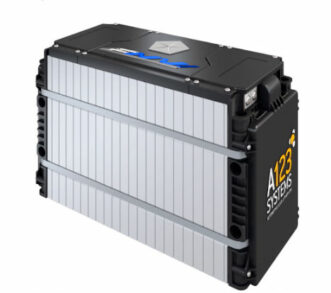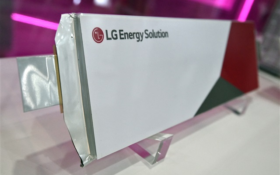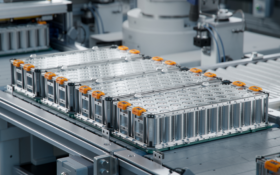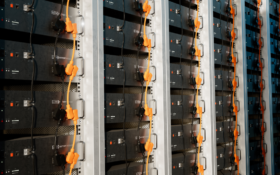Top executives at LG Chem and Johnson Controls said the cost of lithium-ion cells used in electric and hybrid vehicles are likely to be about half of today’s price by 2020, but overall costs of packs are unlikely to fall by as much.
Speaking at The Battery Show in Novi, Michigan, they warned costs of lithium-ion battery management systems could remain high because of a lack of standardization among hybrid car manufacturers.
“We have an internal target to go down by at least a factor of two by 2020,” said Prabhakar Patil, chief executive officer of LG Chem Power, a division of lithium-ion battery maker LG Chem. “I am very positive in terms of the slope that I see.”
Brian Kesseler, the president of Johnson Controls’ Power Solutions said cell costs may indeed fall by half, but overall costs of battery packs, which include the control systems that surround the energy source, are unlikely to decline that quickly without standardization across auto makers, he told the Wall Street Journal.
“The real issue is the cost of the total system,” he said. With each auto maker using a customized system to run its electric vehicles, it’s unlikely to overall cost of an electric vehicle is likely to decline dramatically.
Argonne National Laboratory estimates that the average cost is about $500 for each kilowatt-hour of energy storage.












